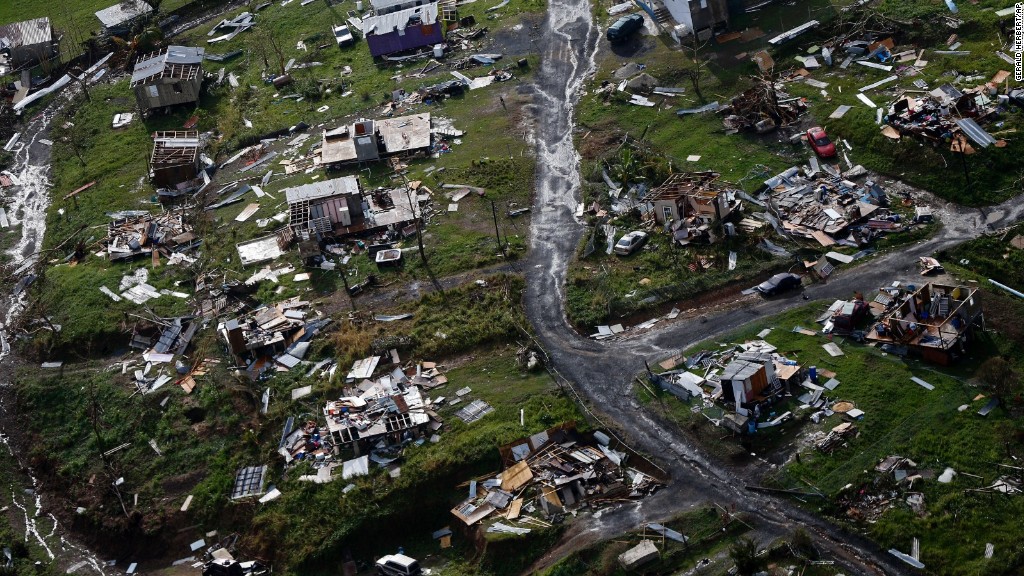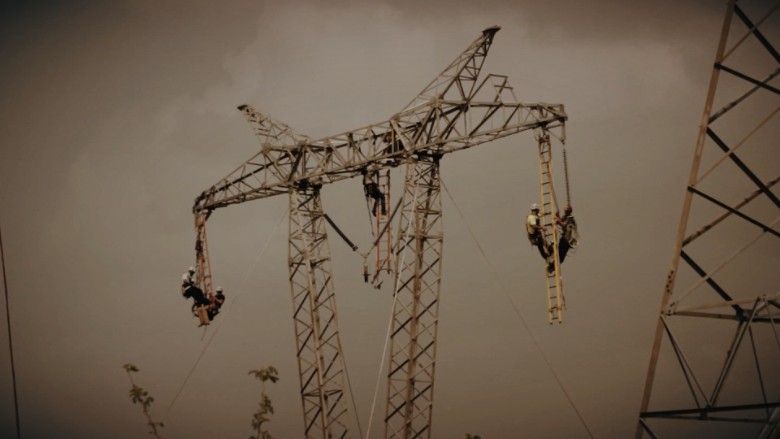
Now that Puerto Rico's governor has called for the cancellation of a controversial $300 million contract awarded to a small Montana-based utility, many questions remain for the millions of residents who continue to live on the island without electricity.
Governor Ricardo Rossello's request to terminate the contract with Whitefish Energy comes less than two weeks after the two-year-old firm announced it had landed the deal to help restore Puerto Rico's electrical grid.
On Sunday, Rossello called on Ricardo Ramos, the head of the Puerto Rico Electric Power Authority -- known as PREPA -- to void the deal immediately in the wake of escalating public outrage and a growing litany of government reviews.
"There can be no distraction that alters the commitment to repair the power grid as quickly as possible," Rossello said in a statement.
The Whitefish contract is the largest to be awarded since recovery efforts began over a month ago. Several lawmakers on Capitol Hill are calling for reviews of how Whitefish, a small firm with only two employees at the time Hurricane Maria hit, was chosen over bigger, more established utilities by PREPA. On Monday, it was reported that the Federal Bureau of Investigation had opened a preliminary review of the contract, according to a source familiar with the matter.
Related: How Whitefish landed Puerto Rico's $300 million power contract
A number of concerns have also been raised, including whether there was any political influence that resulted in Whitefish winning the deal and if PREPA took the appropriate steps in awarding the deal.
PREPA's Ramos said the state-run utility would work toward canceling the contract and would appoint a trustee to oversee the hiring of any new contractors.
Whitefish has expressed disappointment over the latest step. "The decision will only delay what the people of Puerto Rico want and deserve," the company said in a statement.
Still, about 70% of the island is living without power and now there is even more uncertainty about when all the lights will go back on.
Here are some of the questions that remain:
1. Did PREPA do anything wrong by awarding the contract to Whitefish?
The jury is still out.
There are several ongoing reviews looking into how PREPA went about choosing the utility company over other potential candidates. So far, no wrongdoing has been discovered.
Government agencies usually will make a public request for help on a particular job. Often, they will receive multiple offers and the agency reviews and accepts the best, lowest cost bid.
Related: FBI opens inquiry into Whitefish's Puerto Rico contract
But Puerto Rico's governor told CNN last week that PREPA triggered an "emergency protocol" to start rebuilding its electrical grid on the island immediately after the hurricane hit. The governor did not elaborate on what that protocol entailed.
Both the U.S. Army Corps of Engineers and the Federal Emergency Management Agency have said they did not sign off on the Whitefish contract, according to spokespersons for both agencies.
On Tuesday, FEMA administrator Brock Long told members of a Senate panel the agency would never have signed off on the deal.
After the controversy surrounding the contract emerged, the governor instructed Puerto Rico's Office of Management and Budget to conduct an audit of the Whitefish deal.
The governor's office said it has since escalated the review by requesting a "detailed and in-depth investigation" of PREPA's emergency procurement process by Puerto Rico's comptroller.
Results of the audit were expected last Friday, but have yet to be released.
Without learning the full details of the audit, Rossello called upon PREPA to cancel the Whitefish deal over the weekend. The governor's office has made it clear the request in no way demonstrates any wrongdoing thus far.
2. Has Whitefish already stopped work on the island?
No, not yet. The embattled utility company is still pressing ahead with its work.
Whitefish spokesman Chris Chiames told CNN the firm's work won't stop immediately per the terms of its contract with PREPA.
PREPA's Ramos said earlier this week the contract requires 30 days notice before cancellation, and that the state-owned utility wanted Whitefish to "finish what they started."
Related: Relief groups hit major hurdles getting aid to Puerto Rico
So far, Whitefish said it has completed "significant work" on two major transmissions lines that crossed over mountains and it has done some critical work in some remote parts of Puerto Rico that were only accessible by helicopter and heavy equipment.

Its efforts, the company said, have helped restore power to hospitals, businesses and residents of Manati and soon enough 500,000 people in the city of San Juan.
Whitefish said it plans to continue fixing transmission lines into San Juan. It also plans to bring an additional 150 lineman to the island this week -- bringing the total to 500 workers.
"The original decision by PREPA to have Whitefish Energy come to the Puerto Rico only sped up the repairs, and if it were not for that action, crews would just now be getting to the island to begin the process of rebuilding the system and restoring power," according to a Whitefish statement Sunday.
3. What happens after Whitefish is gone?
With Whitefish on its way out, Puerto Rico's governor said he has turned to governors in New York and Florida for help in the recovery effort as part of the mutual aid network among public utilities.
On Sunday, New York Governor Andrew Cuomo posted on Twitter the state would deploy "additional utility crews and equipment to restore power in Puerto Rico."
"There was no reason for this to take 36 days," Cuomo told CNN's Fredericka Whitfield on Sunday. "it's just frankly, because they didn't get the attention and I think we treat Puerto Ricans like second-class Americans."
Florida Governor Rick Scott on Monday said he would lead a delegation of Florida utility providers to Puerto Rico later this week.
4. What other steps can Puerto RIco take to get the power up and running?
On Tuesday, PREPA formally requested to tap the mutual aid network that provides help to other utilities during widespread power outages.
PREPA's Ramos sent a letter to the American Public Power Association and the Edison Electric Institute requesting additional resources for the island.
The state-run utility could have requested aid through this network right after the hurricane hit. But Ramos said he didn't because the closest states to Puerto Rico were already dealing with their own rebuilding efforts after hurricanes Harvey and Irma. He said he believed they would not be able to respond quickly to the island's needs.
The bankrupt utility, which is struggling with nearly $9 billion in debt, also couldn't afford to cover the costs of utilizing the network either, he said.
Carlos Mercader, director of Puerto Rico Governor's office in Washington, told CNN utilizing the network would be a "different situation" than before since the governor himself is asking for help.
One option would be for PREPA to rehire Whitefish subcontractors so they may continue doing the work to restore power and meet the governor's goal to restore nearly a 100% of power by the end of the year.
Related: San Juan's mayor takes on small Montana firm over Puerto Rico power contract
Mercader said the priority now is to transition away from Whitefish, while obtaining more resources to help with restoring power on the island.
Rossello set a goal of having over 1,000 brigades in Puerto Rico by Nov. 8. So far, only 404 crews have arrived. Of those, the U.S. Army Corps of Engineers has only sent seven, according to Rossello.
Rossello said his announcement on Sunday was intended to reaffirm Puerto Rico's "commitment to transparency in the contracting process... and to achieve the highest degree of efficiency possible in the restoration of the power grid of our island, in the shortest amount of time possible."
--CNN's Rene Marsh and Greg Wallace contributed to this report.


